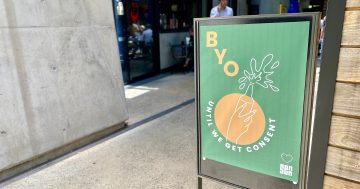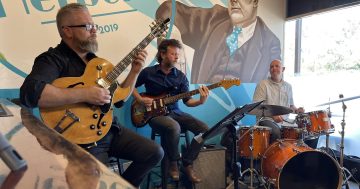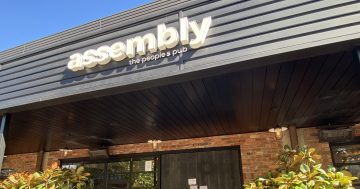ACT Attorney General Simon Corbell yesterday announced that submissions to the Liquor Fees Review had been released.
The Liquor Act 2010 came into force on 1 December 2010, but concerns of licensees and the community led to the announcement of a review in April.
Twenty-one submissions have been put up on the ACT Government’s Justice and Community Safety website for your perusal.
Simon Corbell will table a report of the review in the Legislative Assembly by 1 October 2011.
The submissions followed the terms of reference, including:
- –Discussing the effect that the new fees have had on the number of ACT licenced venues and their trading hours.
–The impact of continuing to use $100,000 as the threshold test for the “annual liquor purchase”.
And here’s what each of the submissions had to say, in brief, about the licensing laws:
- –The Alcohol and other Drugs Council of Australia wants “small bars” to be limited to 100-120 people, overcrowding to be an offence under law, and licensed venues provide no-warmer-than-room-temperature water to patrons for free.
— Casino Canberra like the community safety aspects but are not happy that its annual liquor licence fee was up 429% on the previous year, and the last four months has seen a 9.4% revenue decrease on the same time last year.
— Danbria Pty Ltd (for Knightsbridge Penthouse and Parlour Wine Room) does not like the “seemingly arbitrary” increase in their licensing fees and think it is unreasonable that they have to foot the bill for a public safety exercise.
— Masters Grocers Australia (whose ACT members include Supa Barn, IGA, FoodWorks and Local Liquor) also wants the fees rethought, and a history of compliance taken into account when such fees are set.
— The Cyber Bunker Indoor Golf Centre says it focuses more on a “complete entertainment and social outing” than alcohol, is very small, and should fit into a small category that is not treated like a club or pub just because it sells alcohol.
— The Pot Belly would like a merit system, does not want to pay for extra police in problem areas, and a scaling system so someone buying only $105,000 in alcohol does not pay the same in fees as someone buying $1m worth.
— Vikings Group thinks the “broad brush approach” should look at more than just the late hours of a venue, and consider a venue’s type, area, Liquor Act record and customer type.
— Woolworths Australia does not like that the “risk-based” approach only takes into account how much alcohol an outlet purchases, because this method has increased their licence fee by 350%.
— Canberra Rifle Club has had to pay 48% of their average gross margin on fees, up from 15.5% under the old laws. They also dislike the fact that one set of risk factors is being made to fit all.
— The ACT Rugby Union Club is having to shut at midnight, meaning “people are just starting to loosen up and enjoy themselves when we call last drinks”, it cannot show Brumbies games live from South Africa, and some future Wallabies games can also not be shown.
— An anonymous submitter thinks there should be different fees and conditions for businesses whose primary service is not the sale of liquor.
— Shane Rattenbury of the ACT Greens, who called for the review to occur, thinks a risk-based system will create a “safer and more vibrant Canberra nightlife” (not that we don’t already have a vibrant nightlife) if a middle-sized category is created and the history of the venue is considered.
— Another anonymous person says the changes were “complicated and expensive”.
— The Australian Hotels Association lists 13 venues that have sold or closed since the changes, or are still trying to. The AHA is also concerned that only two RTOs can deliver RSA training, yet up to 5,000 employees will require training before the 1 December 2011 deadline.
— And submissions from the following are up but experiencing a little technical difficulty at our end: Candamber, The Basement, ClubsACT, Matthew Watts, Muddle Bar, and The Phoenix Club.





















